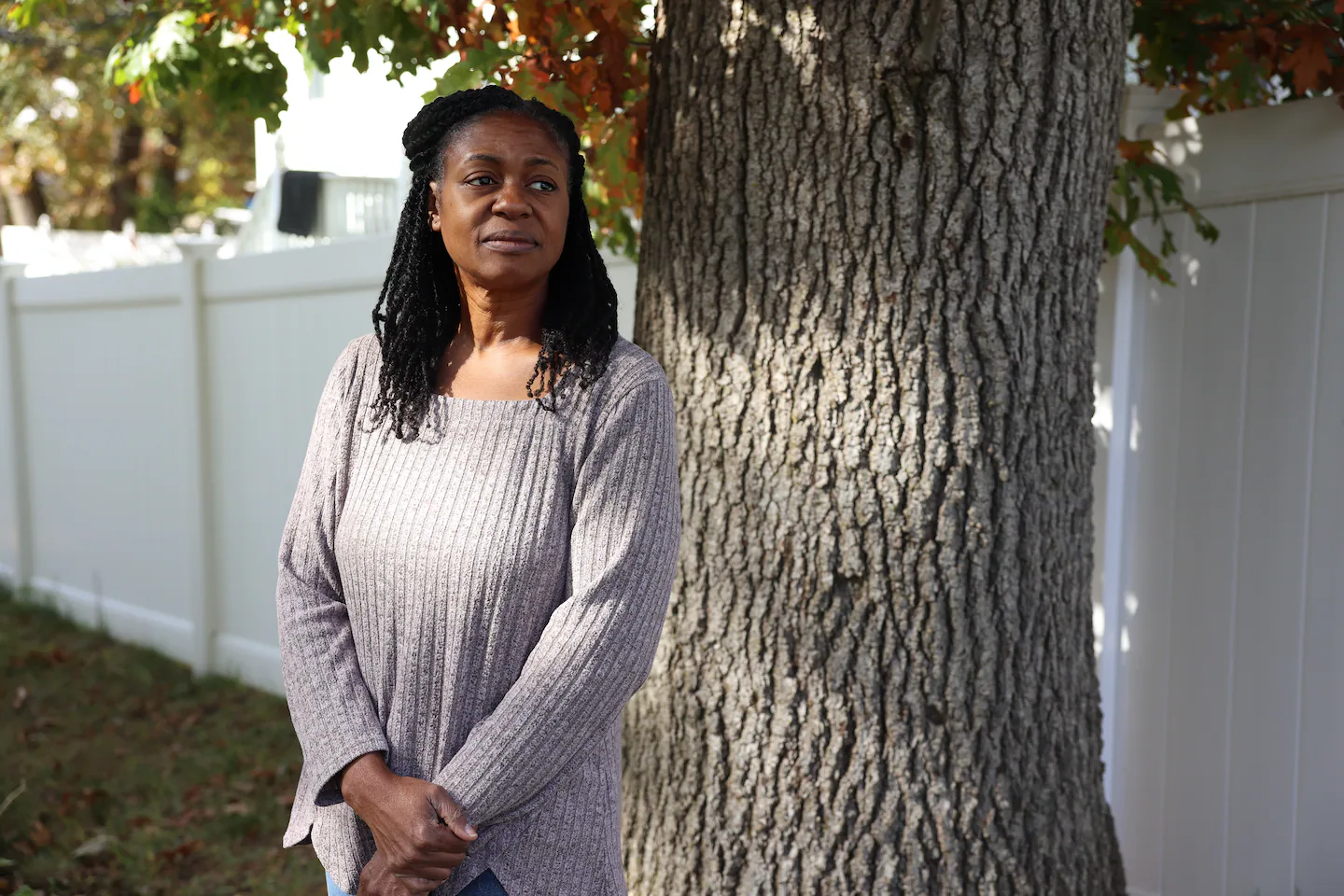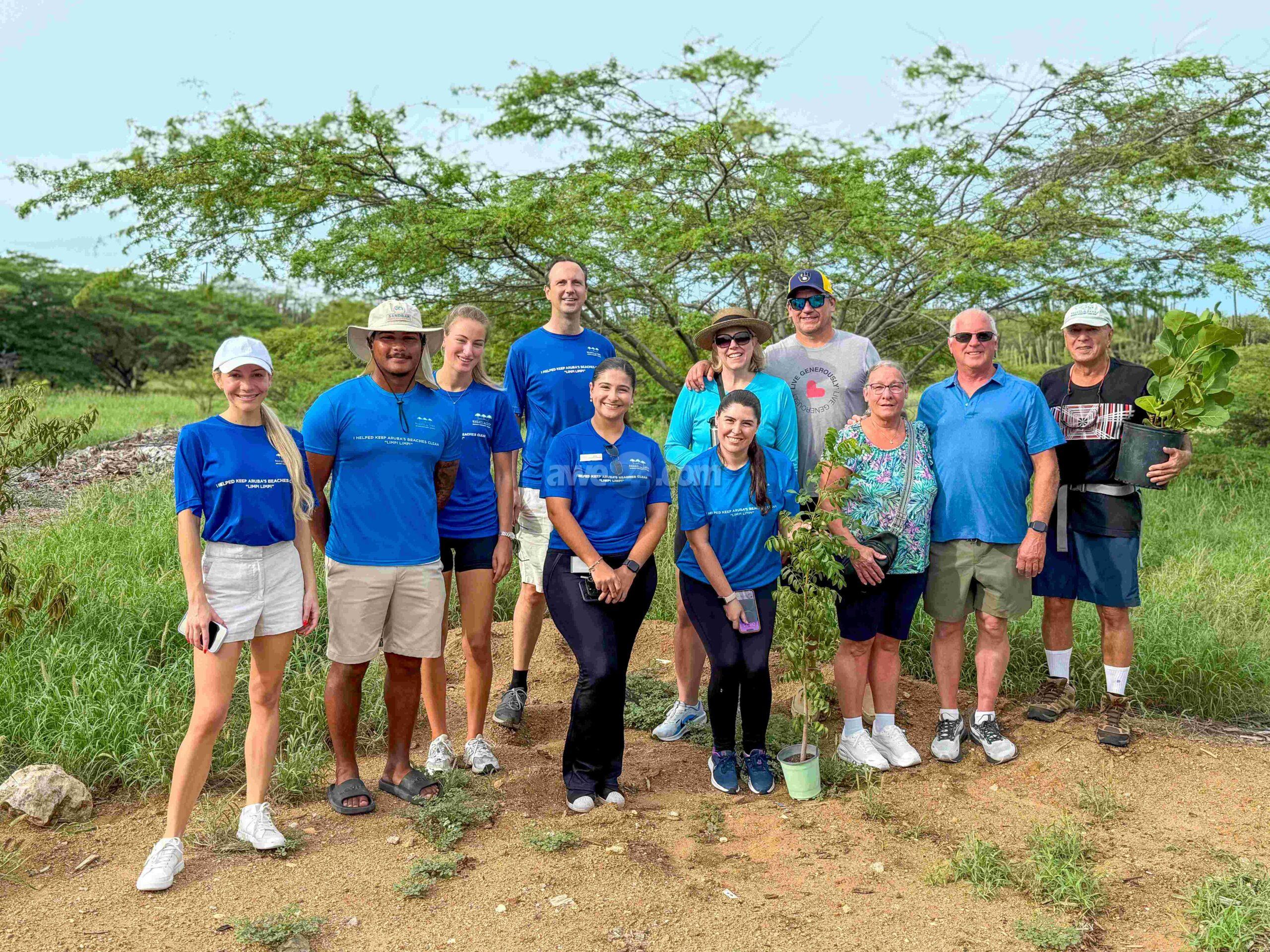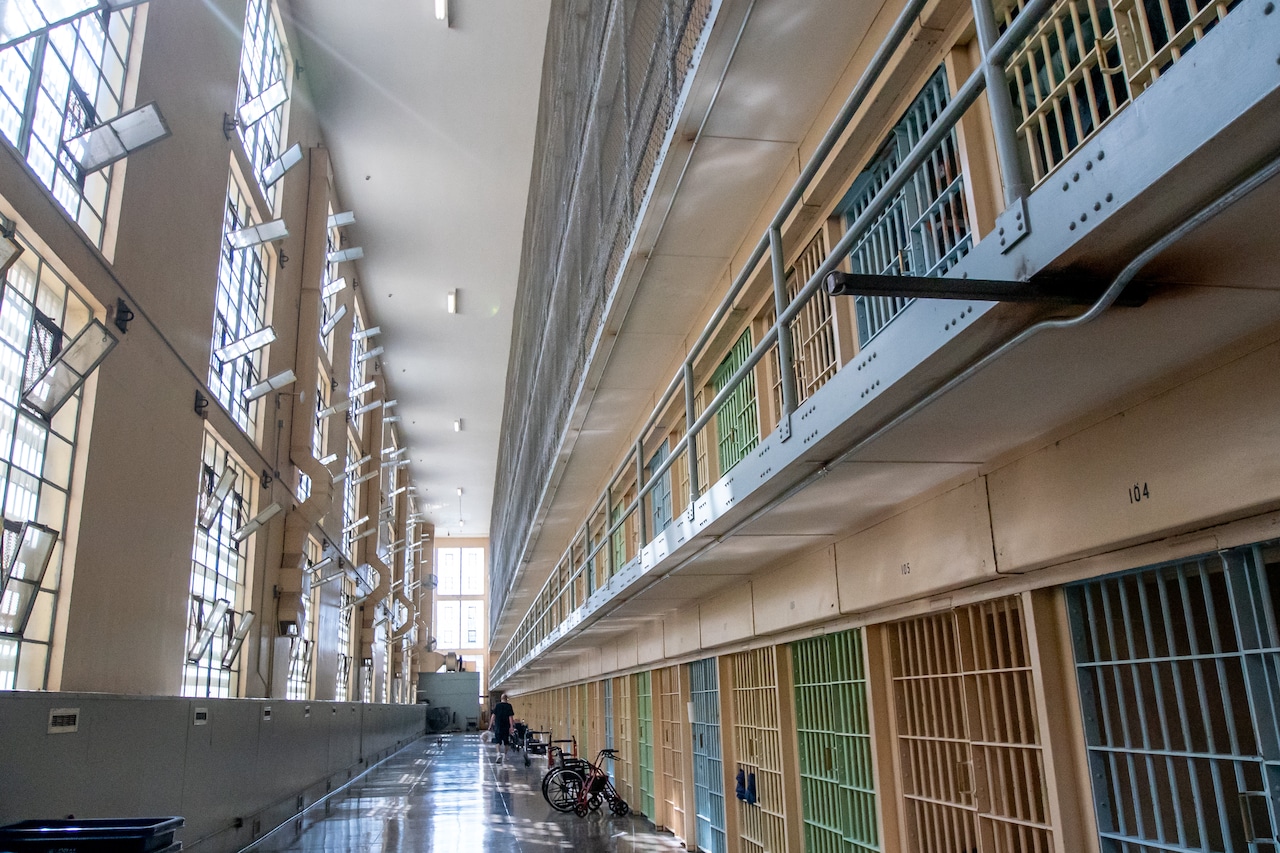Copyright The Boston Globe

One year, Stringfellow counted up dozens of missed buses. But last year, she remembers just one. Stringfellow told the Globe she has seen a marked improvement in bus pickups during the four years of Mayor Michelle Wu’s first term, and she appreciates that she can now track the bus on a new city app. The system remains imperfect, but the improvements took a weight off her shoulders. “It’s a very huge difference,” Stringfellow said. Wu’s performance as mayor — including her impact on quality-of-life issues such as school buses — is on many voters’ minds as she prepares to formally secure her second term next week, running unopposed in the Nov. 4 election. Wu ran for mayor four years ago promising both attention to detail and transformative change. She preached free public transit and rent control, and pledged to bring Boston a Green New Deal. Her vision was to make Boston the most family-friendly city in the country — a home for all. She was going to tackle the city’s beleaguered development planning process and reshape the city skyline without losing sight of the gaping potholes on the streets down below. Today, many of Wu’s loftiest campaign promises remain incomplete. A recalcitrant state Legislature, a wilting housing market, and a hostile new federal administration have all played a role. Still, Wu drew immense support in the first round of voting in September and is days away from being reelected. Over the last few months, the Globe interviewed 100 Bostonians — at bus stops, in parks and parking lots, on their way to and from work and home and the grocery store, in Spanish and in English — about the mayor and her work. Four years later, how much has the quality of life in the city really changed? For most, the answer was: Not much. Crime is down, rent is up. Traffic rages and the bus comes late. Some Bostonians now enjoy city-sponsored compost buckets, while others complain about new bike lanes. Life has gone on. “I don’t think that anything’s really gotten super bad, but I don’t think anything’s gotten super good, either,” said Mike LaVoie, who lives in Brighton and is the general manager of a small business. Wu is “maintaining the current status of things,” said LaVoie, 30, who has lived in Boston for more than a decade. It was a sentiment that many shared when asked what effect Wu’s tenure has had on their lives. Public polling suggests the same: In a recent Boston Globe/Suffolk University poll, 31 percent of likely Boston voters said their quality of life is better than it was a year ago, 31 percent said it is worse, and 36 percent said it is about the same. “I don’t know that it’s gotten easier or more difficult,” said Michael Frank, 77, a semi-retired musician who lives in Jamaica Plain. “I can’t pinpoint things that have changed because of her.” “I don’t see much change,” said Erik Ortiz, 20, a University of Massachusetts Boston student who works in concessions at Fenway Park, as he walked his dog, Orange, around Moakley Park. “I’ve been impressed with [Wu],” said 35-year-old Liz Stocksdale. But “I wouldn’t say my day-to-day is that impacted by it... because it’s been just four years in a big city.” Stocksdale’s was a typical response. Sure, problems remain — but many Bostonians told the Globe they don’t fully blame the mayor for them. Wu remains enduringly popular despite high housing costs, transit woes, and struggling schools. Residents just like her, and trust her — a positive sentiment many said is strengthened at community events, through Wu’s social media presence, and, perhaps most significantly, by her efforts to stand up to the Trump administration as it targets Boston. That popularity earned Wu 72 percent of the vote in September’s preliminary election and chased opponent Josh Kraft out of the race. Those figures underscore that being mayor, and staying mayor, is about far more than hard facts and policy pronouncements. It’s about squishier, harder-to-measure factors, including perception and gut feelings. Stocksdale said she likes Wu’s transparency and sees her as a hard worker. It’s thanks to traits like these that she continues to support the mayor, even as she worries that she and her husband will be priced out of Boston. They own a condo in Roslindale but fear they won’t be able to afford to upgrade to the single-family home they want. “We’d love to stay in the city, because we’re definitely city people,” Stocksdale, a nurse anesthetist, told the Globe. “Obviously the market’s really tough.” Housing affordability is the greatest concern for Bostonians, polling shows, and it came up in interviews with dozens of them — those who already own a home here, and those for whom buying feels laughably out of reach. Rents here have climbed 13 percent since Wu took office nearly four years ago, according to data from ApartmentList, and the median home price in greater Boston hovers around $1 million. Wu has invested hundreds of millions of pandemic recovery dollars into affordable housing efforts and embraced some rezoning efforts to spark new construction, but housing production has declined during her first term. Cesar Guerra, 26, lives with family in East Boston because living on his own is far too expensive, he said. Guerra works as a community program manager for a Massachusetts General Hospital clinical program and said Boston is an ideal place for his career. But “I don’t have the necessary resources or salary to live comfortably,” he said. For him, as for many other Bostonians, those costs force tougher questions. “The quality of life is there, but is it worth paying this amount?” Guerra said. For the last five years, Daniel Serrano, 27, has lived in Mattapan with his wife, in-laws, and, now, two sons. The high cost of living in the city has left him disappointed in the mayor. “It’s almost impossible to try to find anything out here now,” said Serrano, who works as a supply chain tech at Boston Children’s Hospital. “Everything is so expensive.” The slowdown in housing production has also affected construction workers, who said they are struggling to find employment. Christopher Razza, 32, told the Globe his quality of life has declined during Wu’s first term because of the downturn in construction projects. More than half the members of his union are out of work, he said. “We have families to support, and we need jobs, and she’s not doing that for us,” the lifelong Bostonian said. “Six years ago, you’d see cranes everywhere in the sky. Now there’s one or two cranes in the sky.” Even as they described the challenge of finding housing they can afford, many residents said they believed Wu was doing as much as she could. Housing construction in Boston is at its lowest in more than a decade, but experts say inflation, higher interest rates, and rising insurance costs have dampened construction across the country. Wu has “done a really good job” of making it less onerous to build affordable housing, said Chimaobi Izeogu, a 40-year-old architect living in the West End. “I don’t know how much a mayor can do.” In South Boston, where 62-year-old Rick Sullivan has lived nearly all his life, road work has snarled the streets, making it all but impossible to get around on four wheels, he said. “She’s trying to make the city so nobody can own a car,” Sullivan said of Wu in a recent interview in Moakley Park, where his young grandson was tooling around on a toy tricycle. Sullivan, a retired bridge painter, gestured toward a rotary on Old Colony Avenue, where traffic was backed up even during a weekday afternoon. The city’s new bike lanes are “ridiculous,” he added — not used enough to justify their space on the street. “I can’t get into my freaking neighborhood,” Sullivan said. “I can walk around faster than I can drive.” Across town in West Roxbury, 60-year-old Ian Wang is a big fan of the new bike lanes Wu has added, especially on Centre Street in his neighborhood. A cyclist, Wang once watched a young woman on a bike get badly hurt when a car hit her on that street. Wang knows some of his neighbors are furious about the changes to the thoroughfare. But “bikers, we definitely feel safer,” he said. “That’s really the future for cities like Boston. We should promote alternative transportation.” A public transit enthusiast, 23-year-old Jade Kwitkiwski said the mayor inspired her to try a new way of getting around. She never took the bus regularly before she saw Wu’s Instagram commuter series, in which the mayor travels to work with a constituent. “That helped me open up a lot more to the bus system,” said Kwitkiwski, who works at a nonprofit and lives in Brighton. When it comes to those buses, Wu has made only modest progress on a major goal of her first campaign: an entirely fare-free public transit system, starting with Boston bus routes. Wu has eliminated fares for the 23, 28, and 29 routes, which run through Mattapan, Dorchester, and Roxbury. Several residents praised Wu for keeping those lines fare-free, though the broader goal remains far out of reach. Another goal laid out by Wu’s administration: eliminate all traffic fatalities by 2030. That remains a work in progress, too. Perpetua Cannistraro, a book publicist who lives in Roxbury, said city traffic enforcement has not kept up with dangerous drivers or new threats on the road, such as mopeds and scooters. As a pedestrian, she said, she feels “increasingly nervous” at certain intersections — such as near the Reggie Lewis Athletic Center, where a driver fatally struck a pedestrian last year. Like many Bostonians, Cannistraro praised Wu’s “incredibly positive” contribution to national politics. Wu has been lionized locally for a high-profile appearance before a GOP-led congressional committee earlier this year, when she defended the city’s immigration policies. Still, Cannistraro said, “I think that on some of the on-the-ground policy that really impacts our day-to-day lives, there’s some kinks.” “I trust her intentions,” Cannistraro added. “I don’t think I can recognize yet what those intentions have brought forth.” During Wu’s first term, violent crime declined, in keeping with national trends. Boston is one of the safest major cities in the country, data show. Luis Manuel, who now lives in Roxbury after leaving his home in Santo Domingo five years ago, said he likes how calm and safe the city is. “Tranquilo” was how he described it in an interview this summer. “Seguro.” To be sure, it takes just one moment to shatter that sense of safety. Andrea, 58, had liked living in her South Boston neighborhood until her 26-year-old daughter was assaulted in August. It happened at night, and the police didn’t come for at least an hour, said Andrea, who asked not to use her last name given the ongoing investigation. Andrea was “appalled” at the entire situation, she said as she walked her Australian shepherd recently. “We realized it’s not as safe as we think.” Nicolas Fabian Gonzalez, a 58-year-old restaurant worker and Mexican immigrant in East Boston, said safety in the city has improved over the last few years, and credited Wu. He was robbed twice two years ago, he recounted in an interview in Spanish, but, “today,” he said, “I do feel safe.” Those sentiments vary by neighborhood, Globe interviews showed. Many residents are frustrated that Wu has not done more to address issues of addiction and homelessness, particularly near the area of Mass. and Cass, where the city has long grappled with public drug use and dealing. Officials told residents there in September they are deploying 100 recent graduates of the Boston Police Academy to the area, adding a bike patrol, and installing portable cameras in key spots. Franco Campanello, who has lived in the South End for decades, described “an intractable situation.” Campanello, 76, leads regular cleanups of the Southwest Corridor Park, where he said he routinely encounters trash, needles, and other drug paraphernalia, and occasionally even human feces. He said some friends’ dogs have required medical attention after sniffing fentanyl there by accident. Campanello is a fan of Wu but said the challenges in his neighborhood have only worsened in recent years. “I don’t know if anyone can solve a thorn the size of Mass. and Cass,” Campanello said. “Can government even solve that kind of a problem?” When he was a teenager, Clyde Henry attended Jeremiah E. Burke High School in Dorchester. Now the 53-year-old sends his first-grade daughter to private school and his teenage son to Concord-Carlisle High School through the Metco program, a voluntary racial integration initiative that buses Boston children to suburban schools. Henry’s top priority? “Quality of teaching,” he said in a recent interview at a playground in Franklin Park, as his daughter played on the swings. “I want them to learn.” Test scores in the Boston Public Schools have been relatively stagnant under Wu, data show, one reason some parents opt to send their children elsewhere. Less than a third of Boston Public Schools students in grades 3 to 8 are meeting expectations in English Language Arts and Math, far beneath the statewide average. At the high school level, math and English scores on MCAS have declined since 2022. Wu pledged in a speech this week to make Boston “the best” public school system in the nation, but offered few specifics on many of the district’s core challenges. Declining enrollment is also a longstanding challenge in the district. Mimi McGrath, 76, was raised by two public school teachers and said she believes deeply in public education. But decades ago, when it came time for her own kids to go to school, she opted to move out of Boston so she could send them to public school in nearby Milton. Now a grandmother, McGrath is back in the city and living in Dorchester, watching her daughter grapple with the same difficult questions. McGrath’s first- and sixth-grade grandsons are enrolled in Catholic school. McGrath supports Wu overall and credits the mayor with making progress in many parts of city government. But “I don’t think they’ve done nearly enough with the schools,” she said. Even parents who are happy with their children’s schools said there’s room for improvement. Fanny Fermen, who works as a housekeeper, loves her son’s school, Thomas J Kenney Elementary in Dorchester. For her and her shy 10-year-old, she said, there is a sense of community there. “We’re included,” she said. But Fermen does not trust the BPS bus to get her son there and back on time, she said, even though reliability has improved slightly under Wu. So every day, she drives him 15 minutes there and 15 minutes back. School closures and consolidations are another challenge for BPS families. Nick Tracey said he was unhappy when he learned that his 6-year-old’s neighborhood school, Philbrick Elementary, was merging with Sumner Elementary. He feared the children might get less individual attention from teachers. But his family has few options, because they can’t afford private school. Still, Tracey said he can’t see himself leaving Boston. “I’m not moving anywhere, ever,” he said in an interview this summer at Wachusett Street Park. Tracey pointed to the free entry that museums offer BPS families on certain Sundays, a Wu effort to expose more children to the arts. “It is a very family-friendly city. I think they’ve done a great job.” Niki Griswold of the Globe staff contributed reporting.



